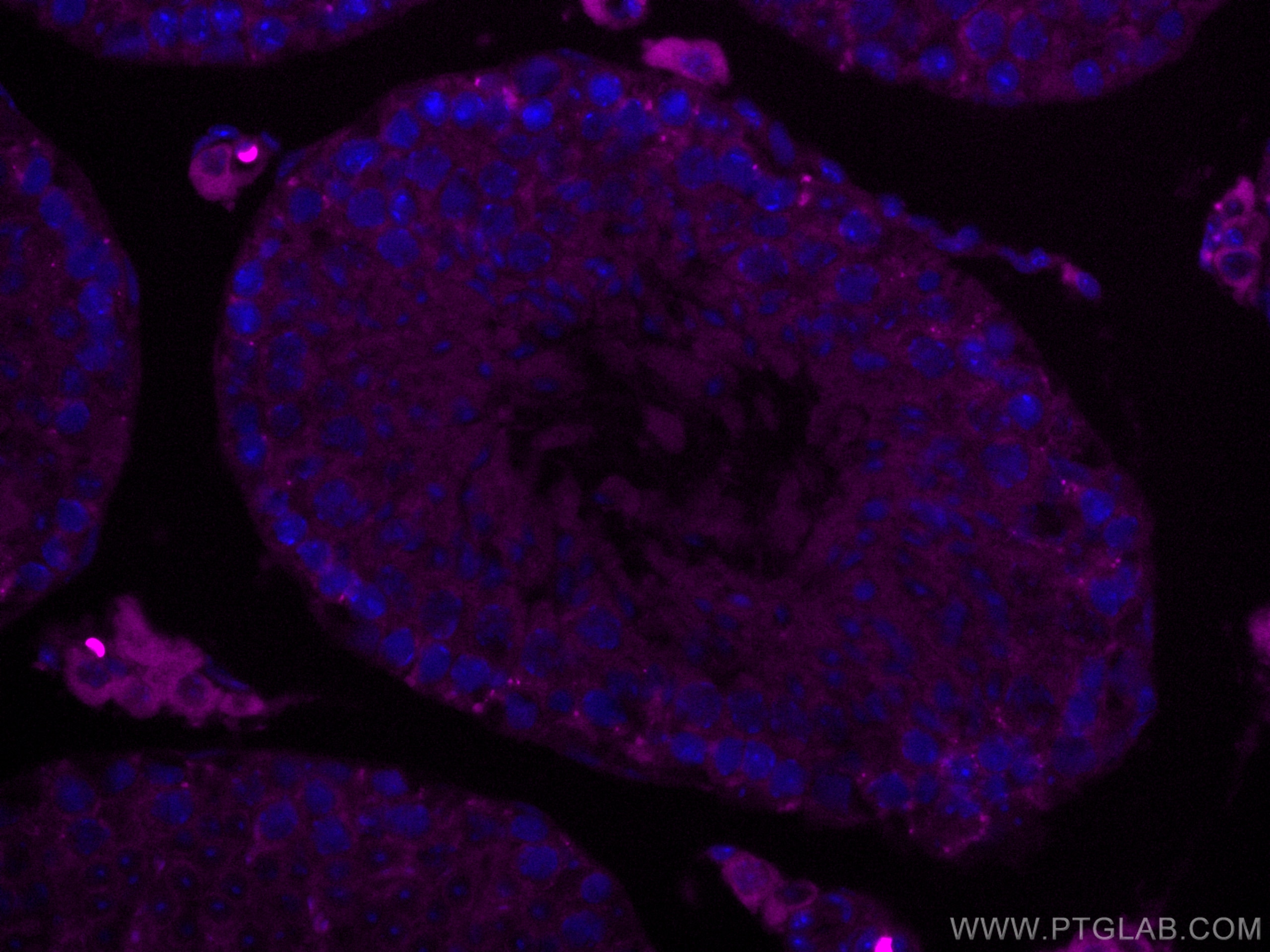Anticorps Monoclonal anti-SMCR7L/MID51
SMCR7L/MID51 Monoclonal Antibody for IF-P
Hôte / Isotype
Mouse / IgG2b
Réactivité testée
Humain, rat, souris
Applications
IF-P
Conjugaison
CoraLite® Plus 647 Fluorescent Dye
CloneNo.
3B3G3
N° de cat : CL647-67808
Synonymes
Galerie de données de validation
Applications testées
| Résultats positifs en IF-P | tissu testiculaire de souris, |
Dilution recommandée
| Application | Dilution |
|---|---|
| Immunofluorescence (IF)-P | IF-P : 1:50-1:500 |
| It is recommended that this reagent should be titrated in each testing system to obtain optimal results. | |
| Sample-dependent, check data in validation data gallery | |
Informations sur le produit
CL647-67808 cible SMCR7L/MID51 dans les applications de IF-P et montre une réactivité avec des échantillons Humain, rat, souris
| Réactivité | Humain, rat, souris |
| Hôte / Isotype | Mouse / IgG2b |
| Clonalité | Monoclonal |
| Type | Anticorps |
| Immunogène | SMCR7L/MID51 Protéine recombinante Ag13775 |
| Nom complet | Smith-Magenis syndrome chromosome region, candidate 7-like |
| Masse moléculaire calculée | 463 aa, 51 kDa |
| Poids moléculaire observé | 48-51 kDa |
| Numéro d’acquisition GenBank | BC002587 |
| Symbole du gène | SMCR7L |
| Identification du gène (NCBI) | 54471 |
| Conjugaison | CoraLite® Plus 647 Fluorescent Dye |
| Excitation/Emission maxima wavelengths | 654 nm / 674 nm |
| Forme | Liquide |
| Méthode de purification | Purification par protéine A |
| Tampon de stockage | PBS with 50% glycerol, 0.05% Proclin300, 0.5% BSA |
| Conditions de stockage | Stocker à -20 °C. Éviter toute exposition à la lumière. Stable pendant un an après l'expédition. L'aliquotage n'est pas nécessaire pour le stockage à -20oC Les 20ul contiennent 0,1% de BSA. |
Informations générales
Human SMCR7L gene encodes, MID51, the mitochondrial dynamic protein of 51 kDa (also called mitochondrial elongation factor 1, MIEF1). MID51 is a single-pass membrane protein anchored to the mitochondrial outer membrane and regulates mitochondrial morphology. Mitochondrial morphology is controlled by two opposing processes: fusion and fission. Elevated MID51 levels induce extensive mitochondrial fusion, whereas depletion of MID51 causes mitochondrial fragmentation. MID51 interacts with and recruits Drp1 to mitochondria, suggesting a critical role of MID51 in regulation of mitochondrial fusion-fission machinery in vertebrates.
Protocole
| Product Specific Protocols | |
|---|---|
| IF protocol for CL Plus 647 SMCR7L/MID51 antibody CL647-67808 | Download protocol |
| Standard Protocols | |
|---|---|
| Click here to view our Standard Protocols |


